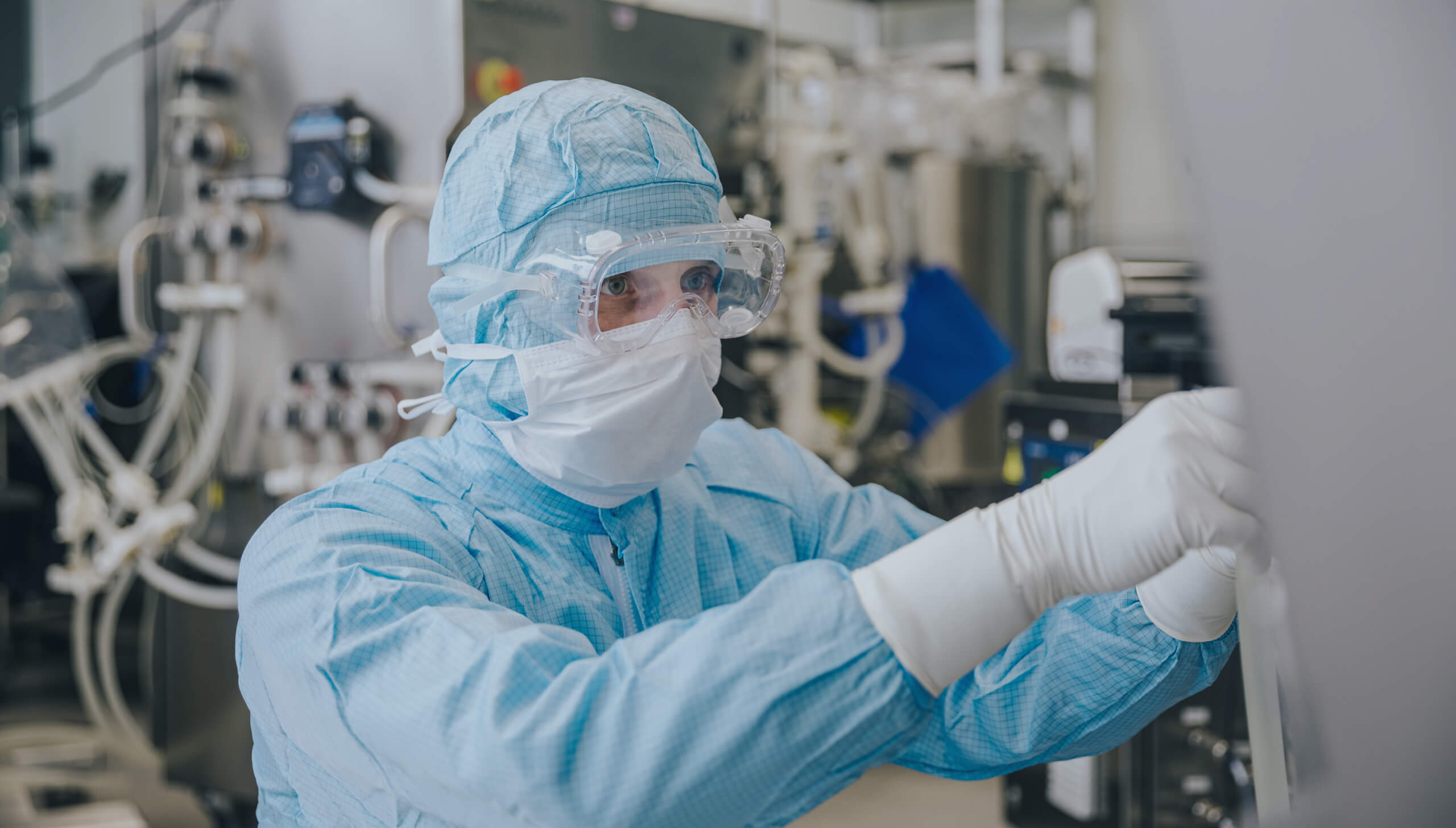

Drug Substance Manufacturing Platforms
As one of the world’s leading CDMOs for vaccines, gene and immune therapeutics, and sterile injectables, IDT Biologika has a wealth of experience in the biological processes and technologies used to produce Vaccines, Viral Vectors, and Oncolytic Viruses.
Comprehensive Offering
There are virtually no upstream or downstream methods used today that we do not offer. Every process is different, so when process technology is not yet defined by our client, we will evaluate the parameters and define which of several leading technologies we offer will be optimal based on past experience and knowledge.
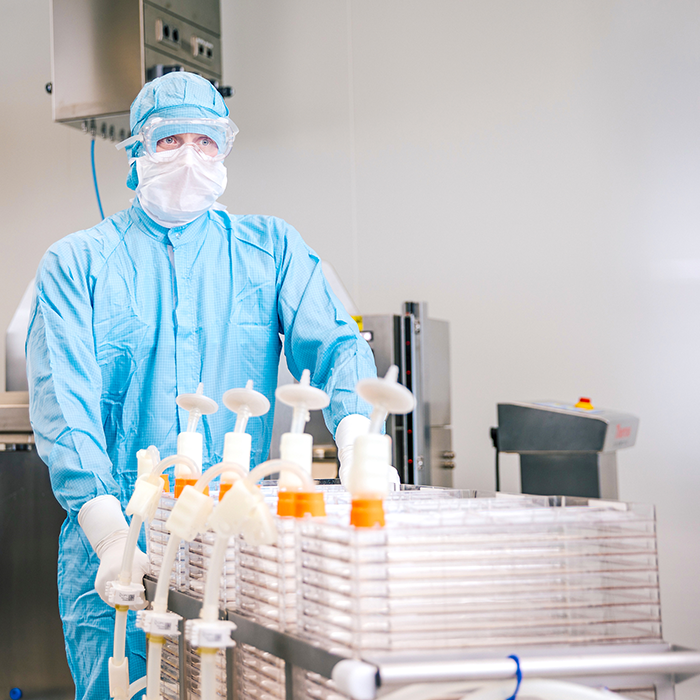
Static Cell Culture Vessel
IDT Biologika has extensive experience in processes utilizing cell factories, in dimensions from a single level up to 40 levels. Our techniques working with cell factories are well characterized and processes are validated through aseptic process simulations (APS). Clients will often bring an existing process using a cell factory, but the process scale may be limited – CF10 for example – so we will scale the process to commercial volume and may transfer it to CF40 to enlarge the batch size.
Cell Factory™/CellSTACK
- up to 25 x CS10/CF10
- up to 16 x CS40/CF40
Corning HYPER Stack ®
- 20 x HS12/HS36
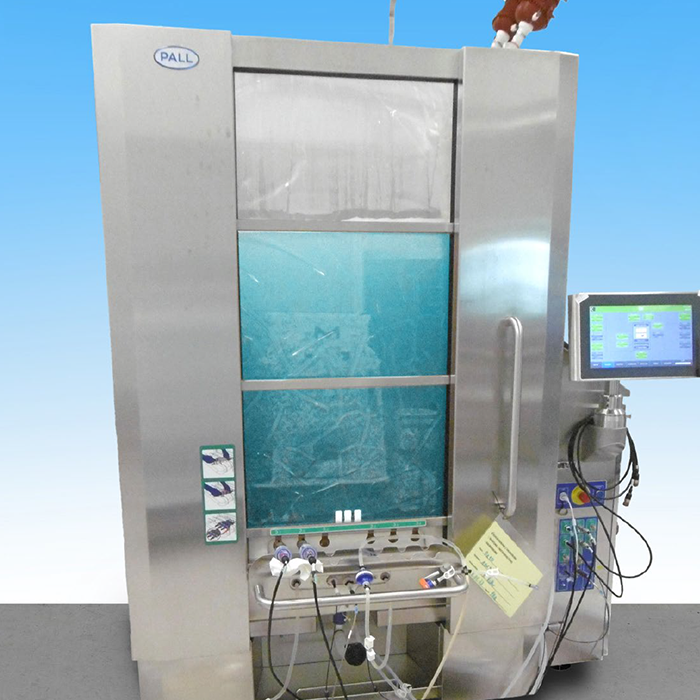
Stirred Tank Reactors
As part of our drug substance manufacturing, we employ stirred tank reactors – either as single-use systems for cell cultures or as stainless steel vessels for microbial manufacturing.Our cell culture technology supports both, suspension and adherent cultures, including microcarrier
technology.
Cytiva/Pall
- 1 x 200L, single-use,
- 2 x 2,000L, single-use
Sartorius
- 1 x 200L, single-use
Edelstahl für Mikroben
- 2 x 100L
- 2 x 800L
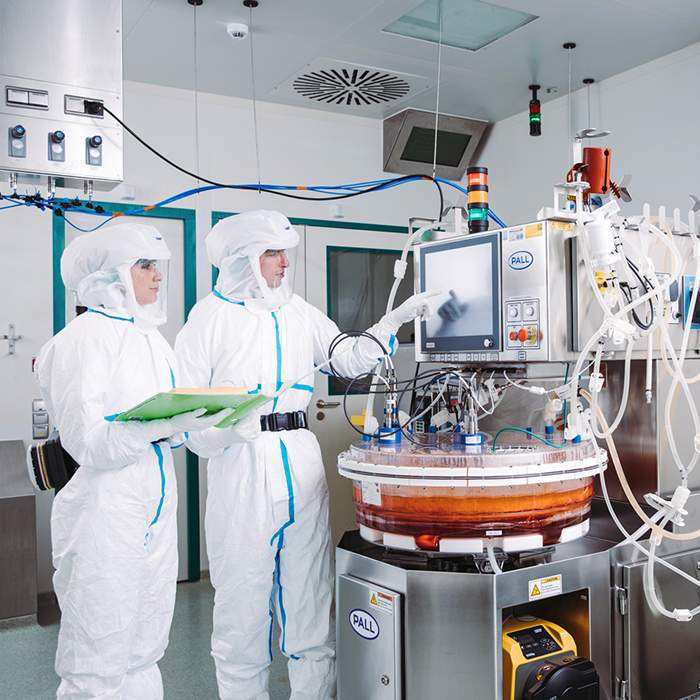
Fixed Bed Reactors
Fixed-bed reactors are specifically designed for adherent cell culture applications, offering a simplified and scalable solution. This technology enables cell growth in a controlled 3D environment with precise regulations of temperature, ph, and dissolved oxygen. It is highly flexible, supporting smooth scale-up from small scale to commercial volumes.
Cytiva
- 8 x iCELLis™ nano
- 2 x iCELLis™ 500+
UNIVERCELLS Technologies
- Scale-X™ carbo
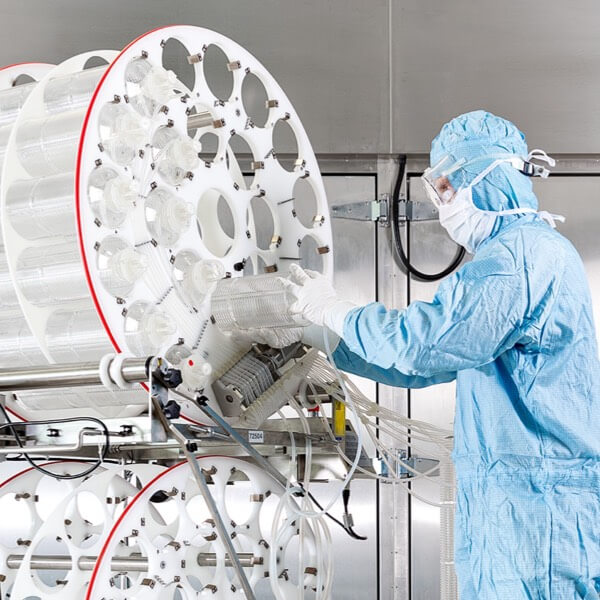
Roller Bottle Technology
Roller bottle systems are a simple incubation system used in cell culture for the manufacture of viral products. It is a 2D system that is used for the cultivation of adherent cells as it provides a very similar process to traditional culture flasks. This approach supports an aseptic process and ensures it stays free of contamination.
- up to 500 roller bottles/batch